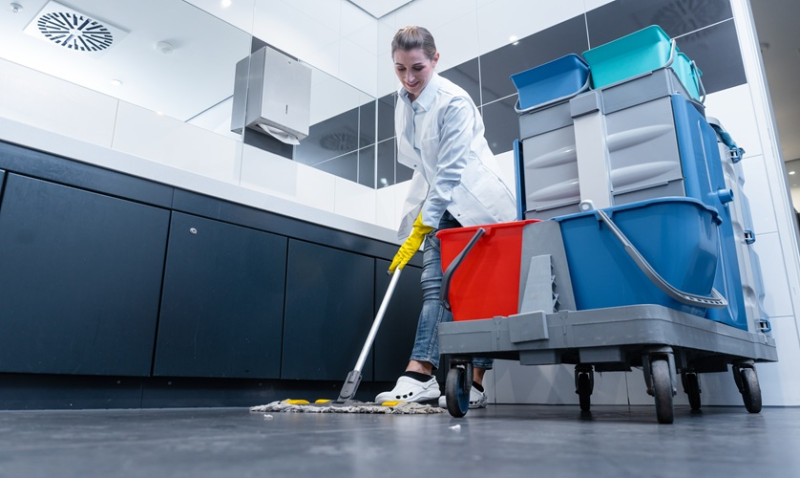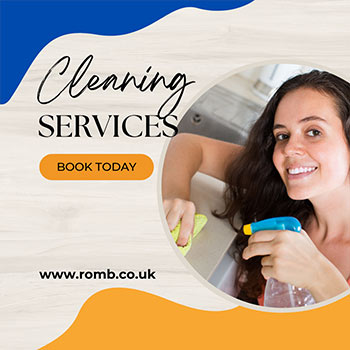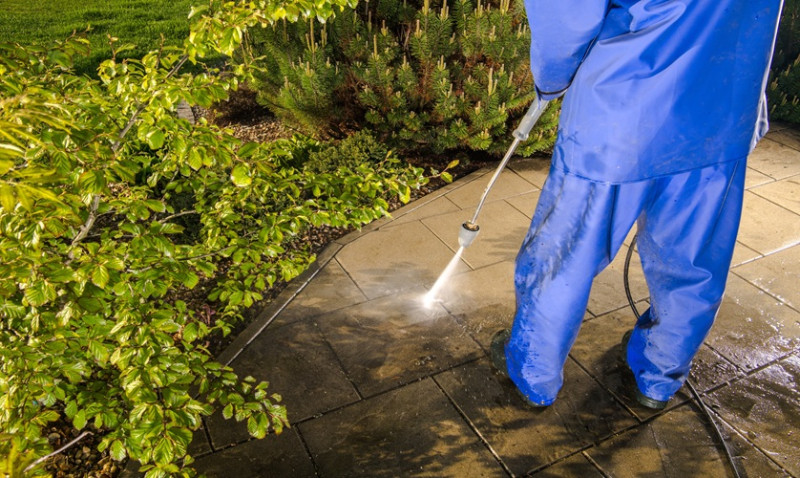
Starting a cleaning business in the United Kingdom can be an incredibly rewarding journey. Whether you're a DIY enthusiast looking to monetise your passion for quality workmanship, a young professional aiming to break free from the 9–5 grind, or even an architect or designer considering a side hustle or service expansion, the cleaning industry offers a lucrative and scalable opportunity. With relatively low start-up costs and increasing demand across residential, commercial, and construction sectors, there's never been a better time to launch your own cleaning service.
In this step-by-step guide, we’ll walk you through everything you need to know to build a successful cleaning business. From conception to operation—and the crucial legal and branding aspects in between—you’ll find this guide practical, easy to understand, and tailored specifically for business starters in the UK.
Step 1: Decide on Your Cleaning Niche
The first and most important step in starting your cleaning business is to identify your niche. There’s a broad variety of services under the cleaning umbrella, and specialising not only helps position your business but also increases your chances of attracting a specific customer base.
In the UK, the most common niches include domestic/residential cleaning, commercial office cleaning, end-of-tenancy or move-out cleaning, post-construction cleaning, and specialised services like carpet or window cleaning. Think carefully about what type of cleaning you enjoy most, what tools and expertise you already have, and where you see a service gap in your local area.
If you're a tradesperson working in construction or renovations, adding a post-building clean-up service could be a natural progression. Likewise, interior designers or architects working on end-to-end project delivery might consider property styling and cleaning ahead of listings or staging.
Essentially, your niche will determine your target audience, marketing message and pricing - so take your time and do your research.
Step 2: Write a Solid Business Plan
Every successful business begins with a clear plan, and your cleaning venture is no different. A business plan not only helps you stay organised but is also essential if you want to secure financing or partnerships down the line.
Your business plan should include the following:
- Executive Summary: An overview of your cleaning business and goals.
- Market Research: A look at your competition and demand in your chosen area or niche.
- Services Offered: Detailed breakdown of what types of cleaning services you’ll offer.
- Target Customer: Define your ideal customer, location and income level.
- Pricing Strategy: How much you’ll charge and why.
- Marketing Plan: Strategies for how you'll promote your services both online and offline.
- Operations Outline: How the business will function day-to-day.
- Financial Forecast: Projected income, profits and expenses over the first 1–3 years.
Even if you don’t present your business plan to investors, writing one will help build confidence and make your idea more concrete.
Step 3: Register Your Business
Unlike informal cash-in-hand jobs, running a registered business in the UK comes with legitimacy and a lot of benefits including access to financing, business banking and allowing you to scale responsibly.
First, decide whether to register as a sole trader or a limited company. Most new cleaning businesses begin as sole traders due to simplicity, but if you intend to scale, hire employees or work with larger contracts, a limited company can offer better legal and tax protection.
Visit the UK Government’s official site and follow step-by-step to register your business name and structure. Don’t forget to also register for Self Assessment with HMRC.
You’ll also need to open a business bank account and keep accurate records of all income and expenses. This makes accounting easier and more professional when dealing with clients.
Step 4: Get the Right Licences and Insurance
While most cleaning businesses don’t require a formal licence in the UK, you should check with your local council in case any special permits are required—especially if handling chemical agents or waste removal.
More importantly, you must get the correct insurance in place before accepting clients. At a minimum, you’ll need:
- Public Liability Insurance: Protects you if someone is injured or their property is damaged due to your business.
- Employers’ Liability Insurance: A legal requirement if you plan to hire staff.
- Tools & Equipment Cover: Covers the cost of replacing expensive machines or supplies.
Working without insurance is risky, especially when entering people’s homes or commercial businesses. A solid insurance policy will earn trust and safeguard your future.
Step 5: Purchase Equipment & Supplies
Now it’s time to gear up. The type and scale of cleaning services you provide will dictate what equipment and supplies you need. For most startups, it’s fine to begin with basic tools and expand gradually.
Common essentials include:
- Vacuum cleaners (consider a commercial model if working in offices)
- Mop and bucket systems
- Cleaning cloths and microfibre dusters
- Non-toxic or eco-friendly cleaning products
- Gloves, uniforms and possibly branded aprons
- Storage containers or trolleys for transport
If you plan to offer end-of-tenancy or builders’ cleans, you might also need ladder systems, pressure washers or fogging machines. Always invest in reliable brands—your equipment performance reflects your brand quality.
Step 6: Price Your Services Competitively
Setting the right price requires careful consideration. Price too low and you undervalue your work and limit your ability to grow. Price too high without justification and you’ll struggle to get your first few clients.
In the UK, average domestic cleaning rates range from £12–£20 per hour based on your region, experience and whether you’re supplying materials. Commercial and specialist services such as deep cleans or post-construction may be priced higher per hour or per job.
Ensure your rates cover travel time, supply costs, insurance and a profit margin. Offer flexible packages: hourly rates, one-off deep cleans or discounted ongoing contracts. Here's a basic pricing template to get started:
| Service | Average Price (per hour or job) |
|---|---|
| Regular Domestic Cleaning | £15 - £20/hour |
| Commercial Office Cleaning | £18 - £25/hour |
| End-of-Tenancy Cleaning | £120 - £250 per job |
| Carpet Cleaning | £40 - £90 per room |
| After-Builders Cleaning | £18 - £30/hour |
Be transparent about pricing, and always offer written quotes to clients. Early on, you may also offer a free first-time clean discount to win over long-term customers.
Step 7: Market Your Cleaning Business
With your setup ready, it’s time to spread the word and attract clients. In today’s competitive market, visibility and trust are everything. Leverage both digital and traditional marketing methods:
- Build a Website: Your website should include service descriptions, pricing, contact information, testimonials, and a booking form.
- Register on Local Directories: Yell, Google My Business, Trustpilot and Checkatrade help boost visibility and credibility.
- Social Media: Platforms like Instagram and Facebook are great for before-and-after photos, client reviews and running promotions.
- Flyers and Posters: Especially effective in local supermarkets, community centres, and high-traffic areas.
- Referrals & Word of Mouth: Encourage happy customers to refer friends with a “recommend a friend” discount.
Remember, consistency is key—keep your messaging professional, personal, and focused on the problem-solving value you offer clients (e.g., saving time, peace of mind, or post-renovation hygiene).
Step 8: Deliver Outstanding Customer Service
The cleaning industry is built on trust. Clients allow you into their private homes, businesses or properties—reliability and professionalism set successful cleaners apart from the rest.
Show up on time, work efficiently, demonstrate attention to detail, and communicate clearly. Always ask for feedback and never hesitate to fix any issues promptly.
Consider using client management software or simple mobile apps to log jobs, send invoices, and track reviews. Over time, client loyalty and repeat hires will become your strongest revenue source.
Final Thoughts
With passion, planning and persistence, your cleaning business can thrive in today’s busy UK market. Whether you’re looking to create a full-time income or a profitable side operation, demand for cleaning services is rising steadily—and there's plenty of space for skills-focused professionals to stand out.
By following these steps, you’ll avoid common pitfalls and create a business that’s both lucrative and sustainable. So grab your mop, do your research, and take the first step toward building your cleaning empire today.







